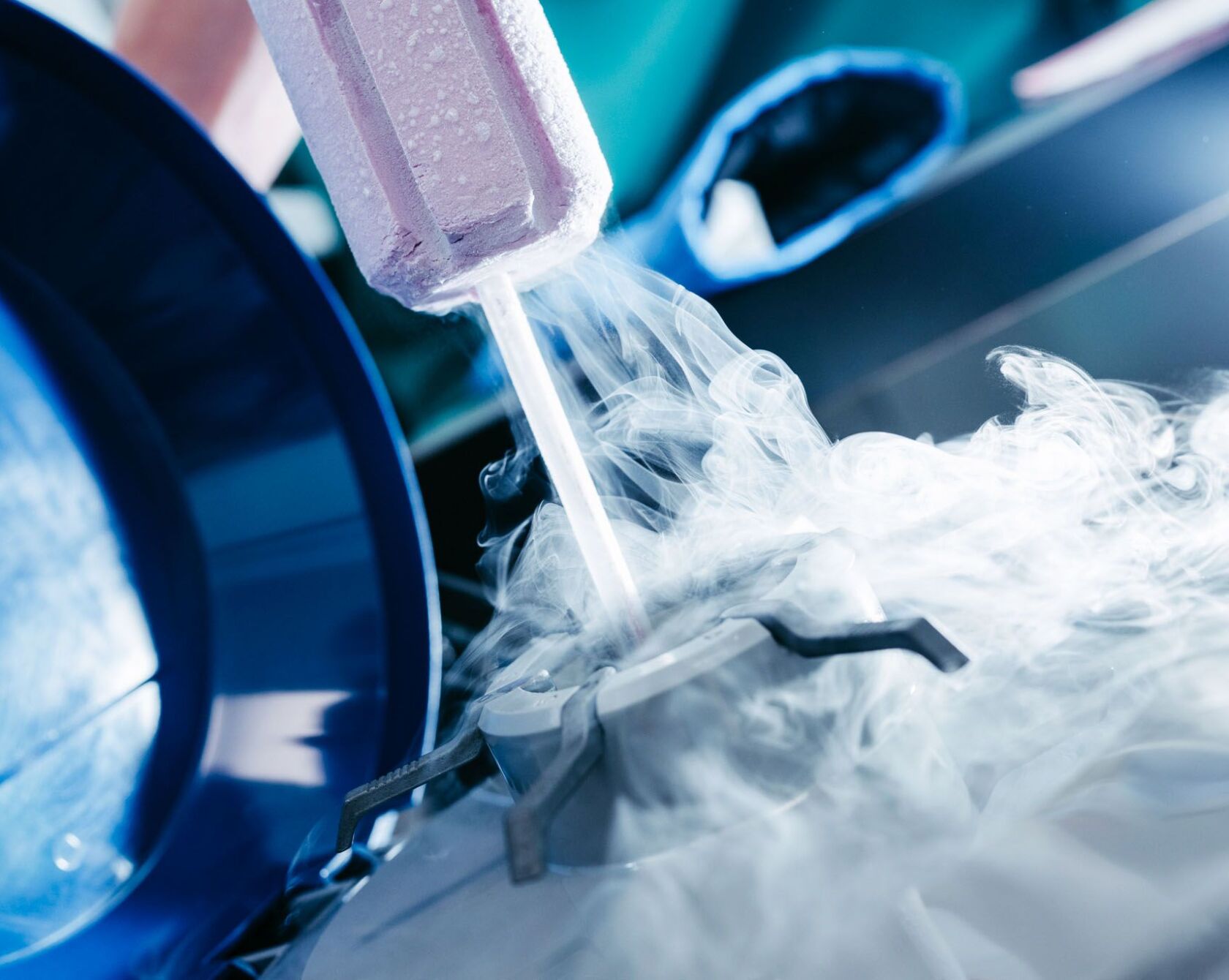A woman can have her eggs frozen in order to become pregnant at a later date. The reasons for this are as varied as the patients themselves.
There is currently no way to prolong a woman’s fertile phase. But we can freeze mature eggs for later,” explains Lena Grubhofer, senior physician at the Clinic for Reproductive Endocrinology. The reasons why women opt for social freezing vary greatly. Mostly women in their early 30s who have not yet found the right partner come to Lena Grubhofer. But women diagnosed with endometriosis, for example, also have their fertility tested and then decide for or against egg retrieval. However, if the reason for freezing eggs is an impending cancer treatment that may reduce a woman’s fertility or abruptly end her fertile phase, this is known as medical freezing, as Ruth Stiller, Senior Physician with extended responsibilities at the Clinic for Reproductive Endocrinology, explains.
What happens during social freezing
If a woman decides to undergo egg retrieval, she is given stimulating medication for around 10 to 14 days from the start of her period to allow several eggs to mature in her body. In a procedure lasting around 20 minutes, the fluid in the follicles is aspirated using a fine needle. The mature eggs contained therein are frozen and stored safely for a maximum of ten years. If the woman later wishes to have children and does not become pregnant naturally, the eggs are thawed and the partner’s sperm is injected into the eggs. After successful fertilization of the egg, an embryo can be implanted in the woman’s uterus.
Social freezing - freezing unfertilized eggs
In Switzerland, egg cells may be stored for ten years. Find out more about social freezing and the procedure, costs and safety of the treatment.
Medical freezing – when everything has to go faster
“Before starting cancer treatment, I discuss options with the patients to give them the chance of having a biological child,” says Ruth Stiller. “In these cases, we can no longer wait for the onset of the period.” If the cancer treatment has to start within a few days, there is no time to stimulate the eggs. “It is then possible to surgically remove ovarian tissue and freeze it. If the cancer treatment damages the egg reserves, the ovarian tissue can later be thawed and reimplanted into the woman.”

